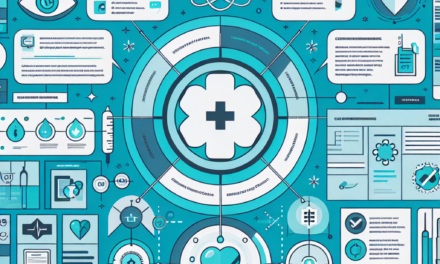Vietnam Unveils Nationwide Expansion of Electronic Health Records

In a significant move towards modernizing its healthcare system, Vietnam has announced a nationwide expansion of electronic health records (EHRs). This initiative is set to revolutionize the way healthcare is delivered across the country, promising improved patient outcomes, enhanced data management, and increased efficiency in healthcare services. This article delves into the various aspects of this ambitious project, exploring its implications, challenges, and potential benefits for Vietnam’s healthcare landscape.
The Current State of Healthcare in Vietnam
Vietnam’s healthcare system has made remarkable strides over the past few decades. With a population of over 97 million people, the country has been working diligently to provide accessible and affordable healthcare to its citizens. However, the system still faces numerous challenges, including disparities in healthcare access between urban and rural areas, a shortage of healthcare professionals, and limited resources.
Despite these challenges, Vietnam has achieved significant improvements in health indicators. The country’s life expectancy has increased, and infant mortality rates have decreased. However, the healthcare system remains heavily reliant on paper-based records, which can be inefficient and prone to errors. This reliance on traditional methods has hindered the ability to provide timely and accurate healthcare services.
Recognizing the need for modernization, the Vietnamese government has prioritized the implementation of electronic health records as a key component of its healthcare reform agenda. This move is expected to address many of the existing challenges and pave the way for a more efficient and effective healthcare system.
Challenges in the Current System
The current healthcare system in Vietnam faces several challenges that hinder its efficiency and effectiveness. One of the primary issues is the lack of standardized medical records. With most records being paper-based, there is a high risk of data loss, duplication, and errors. This can lead to misdiagnoses, delayed treatments, and increased healthcare costs.
Another challenge is the uneven distribution of healthcare resources. Urban areas tend to have better access to healthcare facilities and services, while rural areas often struggle with limited resources and a shortage of healthcare professionals. This disparity in access can result in significant health inequities across the country.
Furthermore, the healthcare system is burdened by a growing demand for services due to an aging population and an increase in chronic diseases. This has put additional pressure on healthcare providers, leading to longer wait times and reduced quality of care.
The Need for Electronic Health Records
The implementation of electronic health records is seen as a crucial step towards addressing these challenges. EHRs offer numerous benefits, including improved data accuracy, enhanced patient safety, and increased efficiency in healthcare delivery. By digitizing medical records, healthcare providers can access patient information more quickly and easily, leading to better-informed decision-making and improved patient outcomes.
Moreover, EHRs can facilitate better coordination of care among healthcare providers. With electronic records, different providers can access a patient’s medical history, test results, and treatment plans, ensuring continuity of care and reducing the risk of medical errors.
Additionally, EHRs can help streamline administrative processes, reducing the burden on healthcare staff and allowing them to focus more on patient care. This can lead to increased productivity and cost savings for healthcare facilities.
The Vision for Nationwide EHR Implementation
The Vietnamese government’s vision for nationwide EHR implementation is ambitious and forward-thinking. The goal is to create a comprehensive and integrated healthcare system that leverages technology to improve patient care and outcomes. This vision is aligned with the country’s broader digital transformation agenda, which aims to harness the power of technology to drive economic growth and development.
Key Objectives of the EHR Initiative
The nationwide EHR initiative in Vietnam has several key objectives. First and foremost, it aims to improve the quality and accessibility of healthcare services across the country. By digitizing medical records, the government hopes to enhance the accuracy and efficiency of healthcare delivery, ultimately leading to better patient outcomes.
Another objective is to reduce healthcare costs. EHRs can help eliminate unnecessary tests and procedures, reduce administrative overhead, and minimize the risk of medical errors. This can result in significant cost savings for both healthcare providers and patients.
Furthermore, the initiative seeks to promote health equity by ensuring that all citizens, regardless of their location or socioeconomic status, have access to high-quality healthcare services. By standardizing medical records and improving data sharing, the government aims to bridge the gap between urban and rural healthcare access.
Implementation Strategy
The implementation of EHRs in Vietnam is being carried out in phases, with a focus on building the necessary infrastructure and capacity to support the transition. The government has partnered with various stakeholders, including healthcare providers, technology companies, and international organizations, to ensure the successful rollout of the initiative.
One of the key components of the implementation strategy is the development of a national health information exchange platform. This platform will serve as a centralized repository for electronic health records, enabling seamless data sharing and interoperability among healthcare providers.
Additionally, the government is investing in training and capacity-building programs to equip healthcare professionals with the skills and knowledge needed to effectively use EHRs. This includes training on data entry, data management, and cybersecurity to ensure the safe and secure handling of patient information.
Challenges and Considerations
While the nationwide EHR initiative holds great promise, it also presents several challenges and considerations. One of the primary challenges is the need for significant investment in infrastructure and technology. The government must ensure that healthcare facilities across the country have the necessary hardware and software to support EHR implementation.
Another challenge is the need for robust data privacy and security measures. With the digitization of medical records, there is an increased risk of data breaches and unauthorized access to sensitive patient information. The government must establish strict regulations and protocols to protect patient privacy and ensure the confidentiality of health data.
Furthermore, there is a need for stakeholder engagement and collaboration. The successful implementation of EHRs requires the active participation and cooperation of healthcare providers, technology companies, and patients. The government must work closely with these stakeholders to address their concerns and ensure a smooth transition to electronic records.
Case Studies: Successful EHR Implementations
To gain insights into the potential impact of EHRs in Vietnam, it is helpful to examine case studies of successful EHR implementations in other countries. These examples can provide valuable lessons and best practices that can be applied to the Vietnamese context.
Case Study 1: Estonia
Estonia is often cited as a global leader in digital health, with a highly successful EHR system that has transformed its healthcare landscape. The country’s e-Health system, launched in 2008, provides a comprehensive digital platform for managing patient records, prescriptions, and health data.
One of the key factors contributing to Estonia’s success is its strong focus on interoperability and data sharing. The e-Health system allows healthcare providers to access patient information from different sources, ensuring continuity of care and reducing the risk of medical errors.
Estonia’s EHR system has also improved patient engagement and empowerment. Patients have access to their own health records through a secure online portal, allowing them to actively participate in their healthcare decisions and monitor their health status.
Case Study 2: Denmark
Denmark is another country that has successfully implemented a nationwide EHR system. The Danish Health Data Network, established in 1994, provides a secure and efficient platform for sharing health information among healthcare providers.
One of the key features of Denmark’s EHR system is its focus on data standardization and quality. The country has established national standards for health data, ensuring consistency and accuracy across different healthcare settings.
Denmark’s EHR system has also facilitated better coordination of care, particularly for patients with chronic conditions. By providing healthcare providers with access to comprehensive patient information, the system has improved care planning and management, leading to better health outcomes.
Lessons for Vietnam
The experiences of Estonia and Denmark offer valuable lessons for Vietnam as it embarks on its EHR journey. One of the key takeaways is the importance of interoperability and data sharing. To maximize the benefits of EHRs, Vietnam must ensure that its system allows for seamless data exchange among healthcare providers.
Another lesson is the need for strong data governance and privacy measures. Both Estonia and Denmark have established robust frameworks for data protection, ensuring the confidentiality and security of patient information. Vietnam must prioritize data privacy and security to build trust and confidence in its EHR system.
Furthermore, patient engagement and empowerment are critical components of successful EHR implementations. By providing patients with access to their own health records, Vietnam can promote active participation in healthcare decisions and improve health literacy.
Potential Benefits of Nationwide EHR Implementation
The nationwide implementation of electronic health records in Vietnam holds the potential to bring about significant benefits for the country’s healthcare system. These benefits extend beyond improved patient care and outcomes, encompassing economic, social, and technological advantages.
Improved Patient Care and Outcomes
One of the most significant benefits of EHRs is the potential for improved patient care and outcomes. By providing healthcare providers with access to comprehensive and accurate patient information, EHRs can enhance clinical decision-making and reduce the risk of medical errors.
With electronic records, healthcare providers can easily access a patient’s medical history, test results, and treatment plans, leading to more informed and timely interventions. This can result in better management of chronic conditions, reduced hospital readmissions, and improved overall health outcomes.
Moreover, EHRs can facilitate better coordination of care among different healthcare providers. By enabling seamless data sharing, EHRs ensure that all providers involved in a patient’s care have access to the same information, reducing the risk of duplication and fragmentation of services.
Increased Efficiency and Cost Savings
EHRs have the potential to significantly increase efficiency in healthcare delivery. By digitizing medical records, healthcare providers can streamline administrative processes, reducing the time and effort required for data entry, retrieval, and management.
This increased efficiency can lead to cost savings for healthcare facilities. By eliminating unnecessary tests and procedures, reducing administrative overhead, and minimizing the risk of medical errors, EHRs can help lower healthcare costs for both providers and patients.
Furthermore, EHRs can support more efficient resource allocation and utilization. By providing real-time data on patient needs and healthcare utilization, EHRs can help healthcare facilities optimize their staffing, equipment, and resources, leading to more effective and efficient service delivery.
Enhanced Public Health Surveillance and Research
The implementation of EHRs can also enhance public health surveillance and research capabilities. By providing access to large volumes of health data, EHRs can support the monitoring of disease trends, outbreaks, and health outcomes at a population level.
This data can be used to inform public health policies and interventions, enabling more targeted and effective responses to health challenges. Additionally, EHRs can facilitate research on health trends, treatment outcomes, and healthcare utilization, contributing to the advancement of medical knowledge and innovation.
Moreover, EHRs can support the development of personalized medicine and precision healthcare. By providing detailed information on individual patients’ health status, genetics, and treatment responses, EHRs can enable more tailored and effective interventions, leading to better health outcomes.
Conclusion: A Transformative Step for Vietnam’s Healthcare System
The nationwide expansion of electronic health records in Vietnam represents a transformative step for the country’s healthcare system. By leveraging technology to improve patient care, enhance data management, and increase efficiency, Vietnam is poised to achieve significant advancements in healthcare delivery and outcomes.
While the implementation of EHRs presents challenges, including the need for investment in infrastructure, data privacy measures, and stakeholder engagement, the potential benefits are substantial. Improved patient care, increased efficiency, cost savings, and enhanced public health capabilities are just a few of the advantages that EHRs can bring to Vietnam’s healthcare system.
As Vietnam embarks on this ambitious journey, it can draw valuable lessons from successful EHR implementations in other countries. By prioritizing interoperability, data governance, and patient engagement, Vietnam can build a robust and effective EHR system that meets the needs of its citizens and supports the country’s broader digital transformation agenda.
Ultimately, the nationwide expansion of electronic health records has the potential to revolutionize healthcare in Vietnam, paving the way for a healthier and more equitable future for all its citizens.





